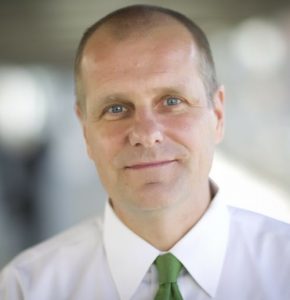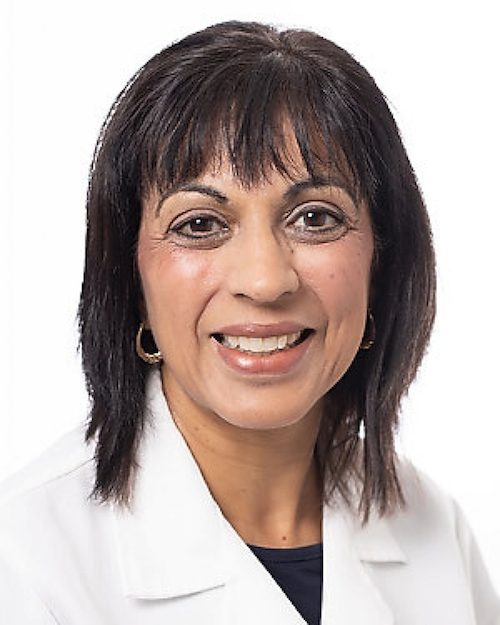February 13, 2020
Vascular disease can manifest as thrombosis, arteriosclerosis, vasculitis, vasospasm or aneurysm formation, and care for the patient is frequently split between a variety of subspecialties. These include cardiologists, vascular surgeons, internists, neurologists, nephrologists, and hematologists, with a variety of support systems. Vascular medicine unifies every organ system, with a comprehensive approach to non-interventional, non-surgical vascular disorders.
To support training in vascular medicine, the Anticoagulation Forum’s Ansell Fellowship Program has awarded the UNC School of Medicine with a grant that will fund one year of fellowship training in vascular medicine. Stephan Moll, MD, professor of medicine in the division of hematology and oncology, is principal investigator, who with input from colleagues, has developed the curriculum to train a UNC fellow supported by the award. He explains the vascular specialty as much more than interventional therapy or medical care of the vascular surgical patient.
“Vascular surgeons take care of arteriosclerosis, once arterial occlusive problems have occurred, but they are not trained in modification of the arteriosclerosis risk factors, which include weight loss, smoking cessation, HTN treatment, and lipid management,” said Moll, who is a member of the UNC Blood Research Center. “Nor is medical management of these risk factors their primary interest; after all, they are surgeons.”
He adds that although there are individual programs and clinics that can address many of these risk factors, a thorough understanding of the etiology, pathophysiology and natural history of the disease, combined with knowledge of medical, surgical and interventional technologies, can better care for these disorders.
Moll, who treats patients with deep vein thrombosis (DVT), pulmonary embolism (PE), and thrombophilia, recognizes that a multi-specialty care approach is best for helping patients with acute DVT and PE, and also with the long-term complications. In the case of post-thrombotic syndrome after DVT and post-PE syndrome, this could include vascular surgery for venous angioplasty and stenting, pulmonary hypertension and lymphedema specialist care, wound specialists to treat venous stasis ulcers, and pharmacists for anticoagulation management. Patients with unexplained (i.e. non-arteriosclerotic) arterial occlusive disease–such as stroke, heart attacks, retinal artery occlusion, peripheral arterial occlusive disease or thrombosis in intra-abdominal organs–typically require care by various specialists.
Moll also says UNC hematologists regularly receive referrals to evaluate younger patients with “unexplained” arterial occlusive disease.
“In private practice and at academic institutions, patients with unexplained arterial thromboembolism, such as stroke, heart attack and mesenteric infarcts, often get referred to a hematologist for work up of a clotting disorder. However, many hem/onc physicians are not prepared to manage these patients. They are oncologists rather than hematologists, and are understandably, cancer focused.”
This grant award will also enable a new collaboration with UNC Rex Healthcare, introducing the expertise of Suman Wasan, MD, a nationally recognized vascular medicine specialist who recently came to Raleigh after directing the University of Oklahoma’s vascular medicine training program for 20 years. Beginning in July, the fellowship is expected to include rotations at UNC Rex, which will bridge unique expertise, physicians, and patient populations.
The Anticoagulation Forum supports advanced training for physicians dedicated to the fields of venous thromboembolism (VTE), vascular diseases, anticoagulation and related areas. The fellowship award is supported by an educational grant to the Anticoagulation Forum from Janssen Biotech, Inc., administered by Janssen Scientific Affairs, LLC. There are currently 17 Vascular Medicine Training Programs in the US, organized in the Society for Vascular Medicine, which was founded in 1989.
On April 16, Moll and Wasan will present a combined UNC Medicine Grand Rounds lecture at 12 noon in 4008 Old Clinic Auditorium. Moll will provide an update on DVT, PE, and anticoagulation. Wasan will explain vascular medicine and the training pathway. Together, they will demonstrate how the vascular medicine specialty can enhance patient care in the current health care system.

